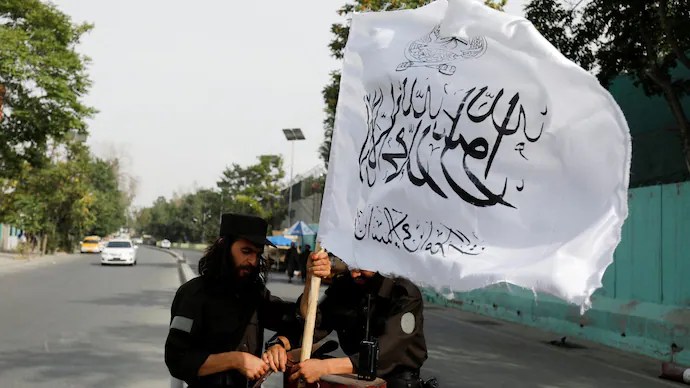Kabul — Afghanistan was plunged into a near-total communications blackout this week after the Taliban imposed sweeping restrictions on internet and telephone services, citing concerns over “immoral activities.”
Global network watchdog NetBlocks confirmed that internet connectivity was disrupted across the country on Monday, describing the situation as a “total internet blackout” affecting Afghanistan’s population of 43 million. Telephone lines were also restricted, compounding the communication crisis.
According to reports, the outage began in stages, first targeting internet access before extending to mobile and landline networks. Authorities have ordered the suspension of 3G and 4G mobile services within a week, leaving only basic 2G connections in place. Fiber-optic links, which carry both internet and telephone traffic, have also been deliberately severed.
The Taliban administration, which has previously expressed opposition to online content such as pornography, stated that the blackout will continue “until further notice.” Officials said between 8,000 and 9,000 telecommunications towers will remain shut down during the suspension.
Kabul recorded the steepest drop in connectivity, followed by Herat in the west and Kandahar in the south, according to Cloudflare Radar, a global internet traffic monitor.

This marks the first nationwide internet shutdown since the Taliban’s return to power in 2021. The move comes just weeks after a deadly earthquake struck eastern Afghanistan, raising concerns that the blackout could further isolate the country at a time of urgent humanitarian need.
The restrictions are also expected to heavily impact Afghan women and girls. Since being barred from secondary education, universities, and many workplaces, thousands had turned to online learning platforms and virtual courses offered by international organizations. With internet services now suspended, those avenues of education and empowerment are also in jeopardy.
The blackout underscores the Taliban’s increasingly hardline governance. In recent months, authorities have imposed stricter interpretations of Islamic law, including new restrictions on women working with international agencies such as the United Nations.
Afghanistan’s sudden communication shutdown not only curtails freedom of information but also threatens to cut off millions of citizens from the outside world, leaving the nation more isolated than ever.










